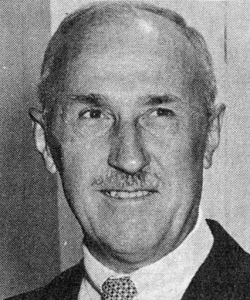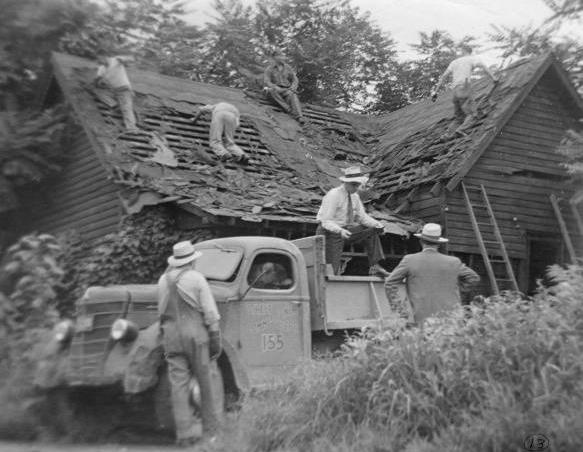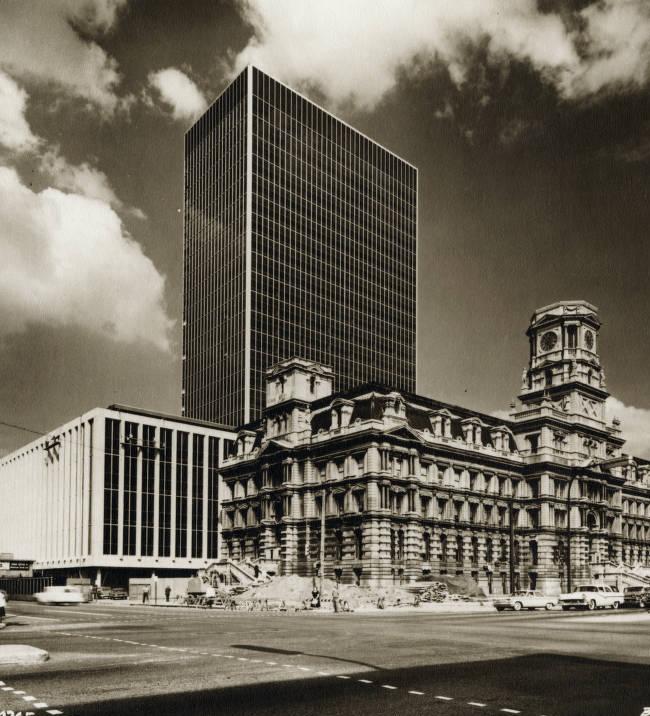
Photo info ...
(Nov. 22, 1891-Apr. 29, 1965). As executive vice president of the Indianapolis from 1934 to 1963, William Henry (Bill) Book was a significant force in the city’s recovery from the and its growth following World War II. His influence in the development of the city’s government and as a key industrial center won him the nickname “Mr. Indianapolis.”

After earning an A.B. degree at in 1919, Book served on the staff of the as a reporter and assistant city editor until 1925, then joined the Chamber of Commerce as director of government research from 1926 to 1933. He served as director of unemployment relief for the State of Indiana from 1933 to 1934, when he returned to the chamber as its executive vice president.
The period following the 1929 stock market crash was a grim time. Book got key business leaders put on the chamber board and then undertook the rebuilding of the city’s economic base toward what became substantial industrial growth. Known as a conservative, he was both criticized and praised for his belief that, while federal funds might be used for interstate projects such as highways and airports, only private funds should underwrite housing and redevelopment. With a tight economy restraining the city at the end of World War II, however, he saw that his position was no longer practical, and he supported broader federal assistance.

Asked late in his career to list what he considered the chamber’s primary achievements under his leadership, Book cited what he called “things that probably would not have happened otherwise.” He listed a distinctive slum clearance program, a modern postwar sanitary system, adequate flood control legislation, countywide metropolitan planning, the new , a major fund drive for a modern hospital, a community attractive to business through fair taxation, and unparalleled business and industrial growth.
His many civic activities included service for 35 years as chairman of the Red Cross’s Disaster Relief Committee. He was inducted posthumously into the Indiana Academy, an organization honoring the state’s illustrious citizens.
FURTHER READING
- Geib, George W., and Miriam Geib. Indianapolis First. Indianapolis Chamber of Commerce, 1990. https://search.worldcat.org/en/title/22841225.
- Hawkins, Hubert H. , and Robert R. McClarren. Indiana Lives : A Reference Edition Recording the Biographies of Contemporary Leaders in Indiana, with Special Emphasis on Their Achievements in Making It One of America’s Greatest States. Historical Record Association, 1967. https://search.worldcat.org/en/title/3099413.
CITE THIS ENTRY
APA:
Farmer, J. E. (2021). William Henry Book. Encyclopedia of Indianapolis. Retrieved Jan 28, 2026, from https://indyencyclopedia.org/william-henry-bill-book/.
MLA:
Farmer, James E. “William Henry Book.” Encyclopedia of Indianapolis, 2021, https://indyencyclopedia.org/william-henry-bill-book/. Accessed 28 Jan 2026.
Chicago:
Farmer, James E. “William Henry Book.” Encyclopedia of Indianapolis, 2021. Accessed Jan 28, 2026. https://indyencyclopedia.org/william-henry-bill-book/.

Help improve this entry
Contribute information, offer corrections, suggest images.
You can also recommend new entries related to this topic.